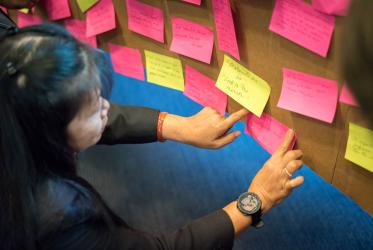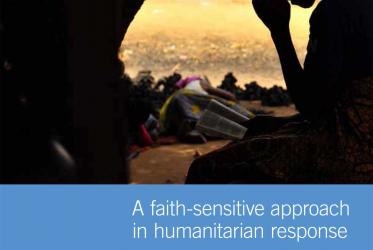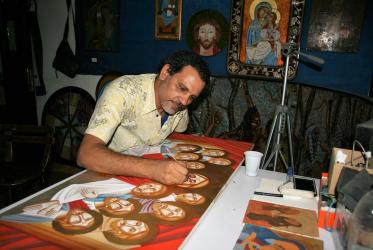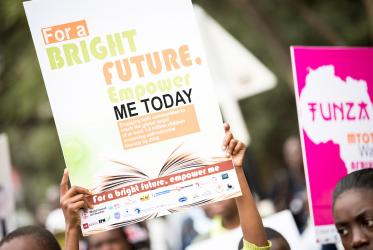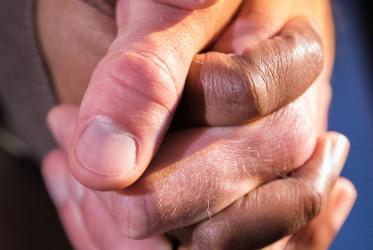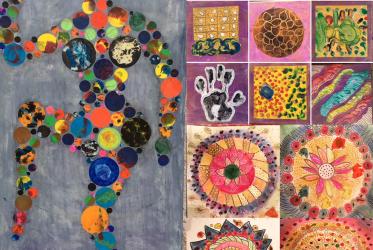Displaying 121 - 140 of 262
WCC mourns passing of Calle Almedal
11 June 2018
Congolese churches respond to Ebola outbreak
01 June 2018
WCC calls for Global Day of Prayer to End Famine
31 May 2018
At CSW62, “stories are the heartbeat”
21 March 2018
Conversation on HIV “must continue,” Faith Networking Zone shows
07 December 2017
World AIDS Day 2017 - prayer service, exhibition, panel discussion
01 December 2017
Ecumenical Centre, Geneva
Re-engineering life forms: Church forum raises concerns
09 November 2017
